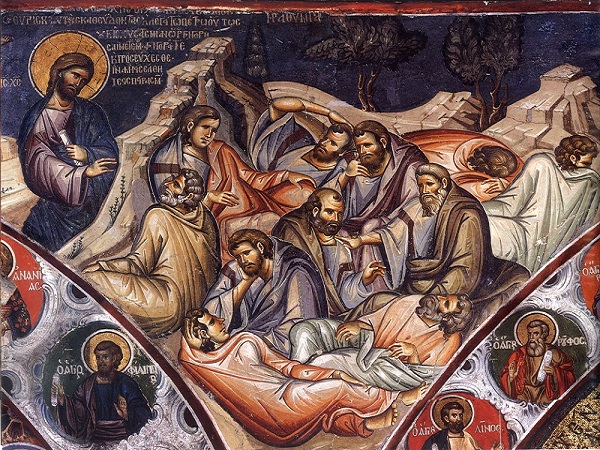The Great Gain (Archimandrite Theofilos Lemontzis, D. Th.)
23 Απριλίου 2017
[Previous post: http://bit.ly/2onWKQd]
Forgiveness is the effort and exercise of a love that is, in the end, transformed into joy and leads to salvation, as Saint Païsios the Athonite notes: ‘There’s no greater joy than that which you feel when you’re hard done by. I wish everybody would treat me unfairly. I can honestly tell you that the sweetest spiritual joy I’ve ever felt was through being badly treated’.

We often hear people say: ‘It’s not possible, I can’t forget the harm that so-and-so’s done me’. Many people think that ‘I forgive’, means that ‘I justify what’s been done to me’. Or even more, they equate forgiveness with a lack of self-respect on the part of the injured party. But forgiveness has nothing to do with anybody else except ourselves. Forgiving can make us more mature, can liberate us, and can make us re-think positions and views which are causing us stress and worry. Unless we manage to forgive, there’s a danger that so much bitterness and anger will accumulate within us that we might, in the end, be brought to a state of being unable to forge close relations of confidence with others, with all that implies for our spiritual and psychological health and for the quality of our life in general.
Forgiveness contributes to allowing us to leave behind unpleasant emotions and to liberate ourselves from what is often their onerous weight, making it possible for us to trust others again and invest in relationships with them, in feelings which unite and inspire us. Forgiveness brings us spiritual calm, psychological cleansing and moral satisfaction, as well as freedom from unpleasant emotions, all by getting rid of the feeling of pain. Remembering harm done to us and continuously going over it again, drawing out negative feelings and thoughts, and placing ourselves forever in the role of victim disturbs our spiritual health and serenity, provokes thoughts of revenge and involves us in stress and depression. The process of forgiveness, on the other hand, takes away the spiritual pain we feel because people have behaved badly towards us. By forgiving, we’re forgiven, because by giving, we receive. As we pray to God: ‘Our Father in heaven… forgive us our debts as we forgive our debtors’.
Forgiveness brings bodily health, because it’s well known that spiritual health and calmness are directly linked with the well-being of our body. Doctors often talk, don’t they, about the psychosomatic causes of many illnesses. Through forgiveness, we’re liberated from our past and we experience redemption. So it shouldn’t escape our notice that, essentially, we forgive for our own sakes, to free ourselves of the burden of remembering past wrongs so that we sleep easily at night, without being afflicted with thoughts of revenge and resentment. True forgiveness means feeling empathy and understanding for those who’ve wronged us, a realization that the brother or sister who’s hurt us is sick and needs to be cured of the passions which are causing them problems in their social inter-reactions.
Conscious transcendence of an unpleasant event which has hurt us and of the negative emotions which this involves isn’t beyond our capacities, nor does it demand that we humble ourselves before the perpetrator. On the contrary, it requires self-knowledge, self-respect and self-confidence. Acceptance of ourselves, with our faults and weaknesses, enables us to understand the failings of other people.



